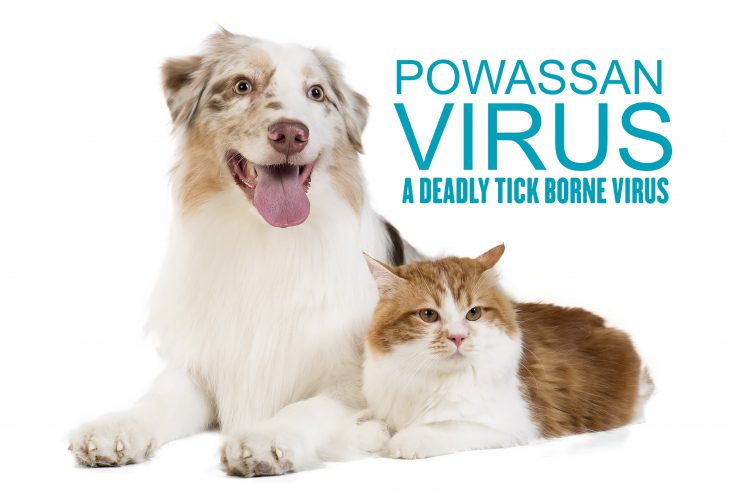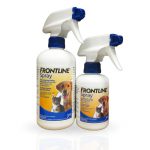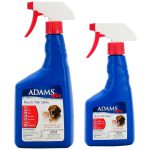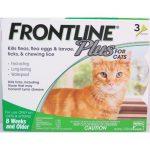If you and your pet plan on going outdoors especially in the woods, you might want to know about a silent and deadly killer: the Powassan Virus, and how to protect yourself against it.
What is the Powassan Virus?
Powassan Virus is a flavivirus. It is the only known tick-borne virus in North America that can severely affect humans. However, as with all viruses, it is not limited to these geographical areas. Since the virus is tick-borne, it is most active during the warmer months (May through July) when ticks are most prevalent.
How does the Powassan Virus spread?
Ticks easily latch on to skin, hair, clothes, outdoor furniture, camping equipment, and pets. The virus can easily be contracted from a tick bite.
What are the symptoms in humans afflicted with the Powassan Virus?
According to the Center for Disease Control and Prevention (CDC), “Signs and symptoms of infection can include fever, headache, vomiting, weakness, confusion, seizures, and memory loss. Long-term neurologic problems may occur. There is no specific treatment, but people with severe POW virus illnesses often need to be hospitalized to receive respiratory support, intravenous fluids, or medications to reduce swelling in the brain.”* In some cases, the Powassan can lead to death.
Can the Powassan Virus affect pets?
The good news is that there have been no known cases of this tick-borne killer affecting pets as of this writing.
How can I protect myself, my family and pets against the Powassan Virus?
As the saying goes, “an ounce of prevention is worth a pound of cure.”
For people, the CDC recommends the following:
“Avoid areas with high grass and leaf litter and walk in the center of trails when hiking.
Use repellent that contains 20 percent or more DEET, picaridin, or IR3535 on exposed skin for protection that lasts several hours.
Use products that contain permethrin to treat clothing and gear, such as boots, pants, socks and tents or look for clothing pre-treated with permethrin.
Bathe or shower as soon as possible after coming indoors to wash off and more easily find crawling ticks before they bite you.
Conduct a full-body tick check using a hand-held or full-length mirror to view all parts of your body upon returning from tick-infested areas. Parents should help children check thoroughly for ticks. Remove any ticks right away.
Tumble dry clothes in a dryer on high heat for 10 minutes to kill ticks on dry clothing after you come indoors. If the clothes are damp, additional time may be needed.”
For Dogs (and cats too):
“Treat dogs for ticks. Dogs are very susceptible to tick bites and to some tickborne diseases. They may also bring ticks into your home. Tick collars, sprays, shampoos, or monthly “top spot” medications help protect against ticks.”**
How can I protect my pet against ticks that might carry the Powassan Virus?
Since ticks are the major hosts of the Powassan Virus and other tick-borne viruses, the best remedy is to protect your pet against them. The following products have been known to provide effective protection against not only ticks, but fleas too.
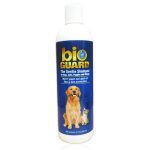
Bio Guard Flea & Tick Shampoo for Dogs & Cats
In summary, the Powassan virus is a tick-borne virus that is typically found in the northeastern Unites States and the Great Lakes region. The virus is most active during the warmer months. The Powassan virus has been known to cause severe illness in humans and even death is some instances. Current research suggests that the virus does not affect pets. While there is no known treatment for the virus, protecting yourself, your family and your pets is the best way to avoid this deadly, tick-borne virus.
*“Powassan Virus” Center for Disease Control and Prevention. 14 February 2017. Web. https://www.cdc.gov/media/dpk/diseases-and-conditions/lyme-disease/ Retrieved on May 15, 2017.
** “Lyme and Other Tickborne Diseases” Center for Disease Control and Prevention. 4 May 2017. Web. https://www.cdc.gov/media/dpk/diseases-and-conditions/lyme-disease/ Retrieved on May 15, 2017.

